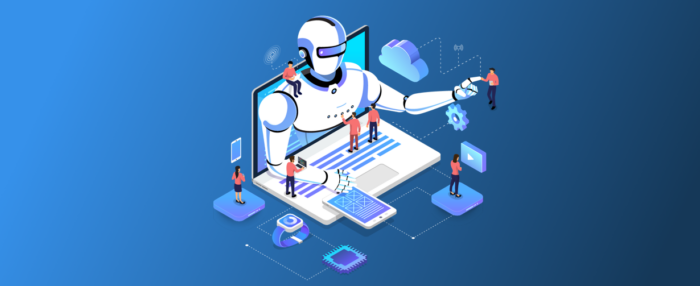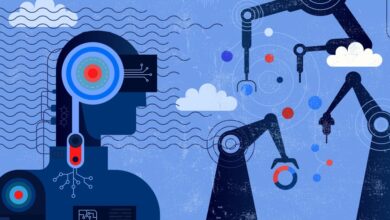Over-Reliance of Students on Artificial Intelligence | by Bakhtawar Amjad | Apr, 2024

Are you aware with the impacts of student dependency on AI in education. Let’s delve into this topic. Learn its pros, cons, implications, and find its way forward.
In today’s fast-paced world, technology is present wherever we go, and students are no exception. From reading on tablets to using educational applications on smartphones, technology has become an essential component of how students learn and participate in their studies. However, there is a rising fear that students depend too much on artificial intelligence (AI) for academic purposes. Over-reliance on AI implies that students may rely too much on smart algorithms and automated procedures to finish their assignments or solve problems. While AI may be extremely useful, students must find a balance between using technology as a tool and improving their own critical thinking abilities. This balance guarantees that kids may embrace the benefits of technology while maintaining their individuality.
Benefits of Artificial Intelligence for Students
1. Personalized Learning
AI tools can tailor learning to each student’s needs. The technology adapts to various learning methods and speeds. For example, visual learners may receive additional images and animations. Auditory learners may receive additional audio content. This customization allows students to study in the most effective way for them.
2. Access to a Number of Resources
Students would spend hours learning arithmetic equations and still not learn them. A derivative calculator allows you to solve equations and learn step by step. Similarly, many people, particularly students, lack proper grammar skills. Students can readily correct grammar mistakes thanks to online tools and artificial intelligence. Some content-generation technologies also help students come up with new ideas and approaches to content creation or writing assignments. So, basically, online tools and AI help students become more efficient.
3. Efficiency and Convenience
Artificial intelligence tools make learning possible at any time and from any location. Students can access numerous online lectures on various topics. They can use their devices to access study materials and tools, making it easy to schedule study time.
Drawbacks of Over-Reliance of Students on Artificial Intelligence
1. Reducing Students’ Intellectual Contribution
Despite its benefits, over-reliance on artificial intelligence in education to complete academic tasks reduces a student’s genuine contribution to his work. The genuine work of the intellect is underutilized, particularly in occupations that involve creativity and critical thinking, such as those in the liberal arts, and this is true in any other sector. It defeats the point of creation when an artificial intelligence does the majority of the work, especially when its objective is mastery and knowledge. The hardest part is determining whether artificial intelligence (AI) was used to complete an assignment, although teachers can still distinguish differences between a student’s and a computer’s work, such as coherence and how effectively the thoughts are organized.
2. Possible Loss of Human Interaction in the Classroom
Human interaction is a critical component of education. Human interaction fosters social skills, emotional intelligence, and a senseof community that AI cannot imitate. Dependence on AI for education may lead to a decline in human involvement. Over-dependence of students on ChatGPT or other AI-based platforms reduces the chances for peer connection. Collaborative learning, involving peer problem-solving and discussion, is crucial for students’ education. Inadequate interactions may hinder students’ social abilities in the classroom.
3. Inequality in Access
Some students are unable to use internet tools and AI as much as individuals from lower socioeconomic situations who may lack access to technology. Furthermore, students from areas that are underprivileged may not have access to necessary resources or facilities. This causes unequal access to education.
4. Plagiarism Risks
Online technologies make it easier for students to plagiarize. Essay bots and AI could be used to cheat. It is because AI systems are educated on massive volumes of data, and they are likely to produce the same information multiple times. This compromises learning integrity. Human over-dependence on technology to generate content increases the risk of plagiarism because the software may unintentionally extract information from other sources without proper reference. This can lead to legal implications and reputation damage for a person or business. To avoid plagiarism, constantly double-check the correctness and originality of AI-generated content.
How to Prevent the Over-Reliance of Students on Artificial Intelligence
1. Emphasis on Teaching Critical Thinking together with AI applications
Developing critical thinking abilities is vital in AI-powered learning environments. Encourage students to challenge information, identify biases, and consider different perspectives. Incorporating digital literacy education, particularly comprehending artificial intelligence and its consequences, into the curriculum is crucial.
2. Strategies for Balancing AI and Human Involvement in the Classroom
AI should be utilized to enhance, not replace, human interaction in the classroom. Teachers play an important role in developing students’ social skills, offering emotional support, and guiding them through their learning journey, which AI cannot fully duplicate. To preserve balance, consider using blended learning models that integrate AI and traditional teaching methods.
3. Utilize Other Resources
Explore additional sources of information, such as books, journals, and websites, to improve your knowledge and find solutions to your questions. Try new things and experiment with various solutions to determine what works best for you.
Conclusion
In conclusion, over-reliance on technology in education can impair a student’s own thinking and learning. When AI handles the majority of the work, students lose the opportunity to properly comprehend and contribute to their tasks. To ensure true learning and growth, students should utilize AI as a tool rather than a substitute. While AI can aid with academic work, it’s critical to avoid becoming overly reliant on it. Students must acquire critical thinking abilities and actively participate in their studies in order to really comprehend and recall material. Overreliance on artificial intelligence may hinder students’ ability to think independently and solve problems. Students must find a balance between using AI as a tool and expanding their own knowledge and abilities.



